
What is Biodynamic Wine?

What’s the Difference Between Natural, Vegan, Organic, and Biodynamic Wine?
Before we get into biodynamic wine, we should probably clarify the differences between some commonly used terms you've probably noticed on wine labels. Natural wine refers to wines made with minimal intervention, often using organic or biodynamic grapes. Vegan wine excludes any animal-derived products during the production process. Organic wine is made from grapes grown without synthetic pesticides, herbicides, or fertilizers. Biodynamic wine takes organic farming a step further by using holistic practices that view the vineyard as a self-sustaining ecosystem.
So What is Biodynamic Wine?
Biodynamic wine is more than just a farming method, it's more of a philosophy that seeks to harmonize the vineyard with the rhythms of nature. It was developed by Austrian philosopher Rudolf Steiner in the early 20th century. Biodynamic farming treats the vineyard as a living organism and uses growing methods that prioritize biodiversity, soil health, sometimes even lunar cycles. Biodynamic principles includes everything from soil regeneration and composting to natural pest control and lunar planting calendars.
So What's with The Cow Horn?

One of the most iconic parts of biodynamic farming is the use of cow horns filled with manure. These cow horns are then buried in the vineyard to ferment for months and then later are added to the soil as compost. This is believed to enhance soil fertility, promote microbial activity, and imbue the wine with a sense of terroir, which will ultimately enrich the entire vineyard ecosystem as a whole.
Do Biodynamic Wines Taste Different?
While biodynamic farming may not directly impact the taste of the wine, many will argue that they do contribute to overall vineyard health and terroir expression. This can result in wines that are of higher quality. So next time you're at your favorite wine shop, consider giving a biodynamic wine a try.
Related Posts
-

Turkey Day Survival Kit: Wines You’ll Be Thankful For
Thanksgiving is all about good food, family, and gratitude... but let’s be honest, the right wine can make the day r...
-

From Dugout to Decanter: Dodgers Who Love Wine
Image via dodgers.com Baseball and wine might not seem like an obvious pairing, but for several Los Angeles Dodgers ...
-

Sauternes and Peach Cake Recipe
If you’ve ever sipped a golden glass of Sauternes and thought, “Wow, this tastes like dessert already,” you’re absol...
-

Creamy Shrimp Enchilada Verde
Everyone needs to try this dish! Creamy, cheesy, a bit spicy, but cooled down with the sour cream! Ingredients: 1 ...
-

Fall Pumpkin Cinnamon Roll Recipe
Nothing says fall like the warm aroma of pumpkin and cinnamon baking in the oven. These Pumpkin Cinnamon Rolls are s...
-

Discover the Value of Plume Ridge’s Cluster Club
Wine enthusiasts know the joy of finding that perfect bottle, balanced, expressive, and true to its place of origin....
-
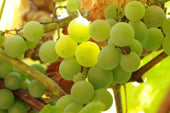
5 Tips For Choosing a Chardonnay
Here are 5 tips for choosing a Chardonnay that matches different tastes and occasions: 1. Decide on Style – If ...
-

How to Choose Wine for a Party Without Stress
Hosting a party is always exciting but figuring out what wine to serve can feel a little overwhelming. Do you need a...
-

Roasted Eggplant with Sumac Recipe
There’s something magical about eggplant when it’s roasted just right. It transforms from a humble, slightly bitter ...
-

Low-Alcohol Wines vs. Non-Alcohol Wines: What’s the Difference?
As more people look for balance between enjoying wine and living a mindful lifestyle, two categories have gained pop...
-

An Evening with Plume Ridge: Wine, Conversation, and Community
There’s something special about slowing down, gathering with friends, and enjoying a glass of wine together. At Plum...
-

5 Short Lighthearted Stories From The Wine World
1. The “Wrong” Wine Glass Test A sommelier once blind-tested guests by serving the same wine in different glasses. P...
-

A Beginner’s Guide to Bordeaux Wines
Bordeaux is one of the most famous wine regions in the world, but for new wine drinkers it can also feel a little ov...
-

Pork (or Chicken) Schnitzel Recipe
Originating in Austria and Germany, schnitzel is a beloved comfort food that has found its way into kitchens and res...
-

Chill Out: Why Red Wine is Finally Cool
For years, red wine has carried a bit of baggage: a fireplace, a heavy steak, maybe your uncle who insists you let i...
-

Spotlight on Sauternes
If you've ever been curious about that golden-hued wine often served in delicate glasses at the end of a fine meal, ...
-

5 Riddles for the Refined (and Slightly Tipsy) Mind
At Plume Ridge Bottle Shop, we believe wine is best enjoyed with great company, and a little bit of fun. Our wine ...
-
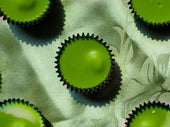
Matcha Peanut Butter Cups Recipe
Peanut butter cups are a classic treat, they're creamy, rich, and indulgent. But if you're looking to add a unique t...
-

Rosé: Why It’s More Than a Summer Drink
When you think of rosé wine, chances are you picture yourself lounging in the sun with a chilled glass in hand. And ...
-

What Today’s Wine Market Says About You (Yes, You!)
Welcome to the ever-swirling, ever-swirling glass that is the current wine market, where trends ferment faster than ...
-
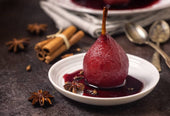
Wine-Based Dessert Recipe Ideas
Who says wine is just for sipping? If you’re looking to take your love for wine to a whole new (and delicious) level...
-

Wine and Taco Pairings
When it comes to taco pairings, most people immediately reach for a cold beer or a shot of tequila. And hey, we get ...
-

Wine and Movie Pairings
Popcorn is always a must for movie nights, but sometimes a glass a wine, or even two, goes well with your favorite f...
-
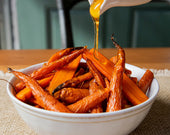
Roasted Carrots and Honey Drizzle Recipe
Sometimes, the most memorable dishes are the simplest ones. One of my favorite veggie dishes to make is roasted carr...
-

Finding Your Perfect Chardonnay at Plume Ridge Bottle Shop
Chardonnay lovers, we see you, and we know choosing the right one can feel a little overwhelming (so many styles, so...
-

Pan-Seared Scallops with Lemon Butter Sauce
Some of our favorite chardonnays come from the Sonoma Coast, and today we have the perfect recipe to pair with a Son...
-

The Role of Terroir and Why Location Matters in Wine
When it comes to wine, we often focus on grape varieties, winemaking techniques, or the aging processes. But there’s...
-

Vegan Falafel Recipe
There’s something magical about falafel, the crispy-on-the-outside, tender-on-the-inside chickpea fritters that are ...
-

Wine Decanting Tips: When, Why, and How to Do It Right
There’s something undeniably elegant about pouring wine from a beautiful decanter. But decanting is about more than ...
-
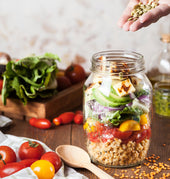
Jar Salad Meal Prep Ideas
If you’re looking for a simple, healthy, and delicious way to stay on track with your meals, jar salads are the way ...
-
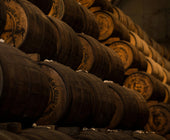
Wine Aging 101: Why Some Wines Improve Over Time
Why do some wines taste better after years in the cellar, while others are best enjoyed fresh? And what exactly happ...
-

5 Reasons Why Drinking Wine in YOUR Pajamas Is Totally Acceptable
There’s something magical about unwinding with a glass of wine, and let’s be honest, pajamas only enhance the experi...
-

Vietnamese Spring Rolls Recipe
Looking for a fresh, vibrant, and flavorful dish to try next in the kitchen? Try making Vietnamese Spring Rolls, or ...
-

Five Fascinating Wine-Related Stories
Here are five unusual and fascinating wine-related stories: 1. The Stolen Romanée-Conti Heist In 2014, thieves broke...
-

Seafood Gumbo Recipe
When it comes to comforting hearty meals, few dishes rival a well-made seafood gumbo. Hailing from Louisiana, gumbo ...
-

Vegan Butter Chicken Recipe
If you love the rich, creamy flavors of Indian butter chicken but want a plant-based version, this Indian Vegan Butt...
-

Dumpling Salad Recipe for Chinese New Year
Slide into the Year of the Snake with this Dumpling Salad. Also perfect to pair with Rosé Champagne, just in time fo...
-

Strawberry Matcha Pancakes
If you're looking for something a little different for breakfast, give this Strawberry Matcha Pancake recipe a try. ...
-

5 Fun Facts About Burgundy
Ancient Wine Heritage: The Burgundy wine region, known as "Bourgogne" in French, has been producing wine for over 2,...
-

Winery Spotlight: Chateau Cos d'Estournel
When it comes to French wineries with a rich history and a flair for elegance, Château Cos d’Estournel stands as one...
-

How to Make Mulled Wine
When the weather turns chilly and the holidays are just around the corner, there’s nothing quite like a cup of mulle...
-

10 Recipe Ideas for Leftover Thanksgiving Turkey
Thanksgiving is over, and now you're left with the most delicious problem, what to do with all that leftover turkey?...
-

Fact vs Fiction About Wine
Discerning fact from fiction in wine can be tricky because wine culture is filled with both valuable knowledge and m...
-

How to Make Loukoumades (Greek Donuts)
If you've ever visited Greece, chances are you've encountered loukoumades. They're delightful little doughnut balls ...
-

Understanding Wine Terminology: A Glossary for Newbies
Getting into wine can be a bit intimidating, but understanding some basic terminology can help you feel more confide...
-

Filipino Pork Adobo Recipe
Pork Adobo is probably the most well known dish to come out of The Philippines. Its known for its tender pork pieces...
-

Salt of the Earth Wines: A Taste of Sweetness
Salt of the Earth wines embody balance between time-honored tradition and modern innovation. Sourced from vineyards ...
-

Ways to Use Leftover Wine in Your Next Recipes
We've all been there. You open a bottle of wine for a special dinner, only to have a glass or two, and now you're le...
-
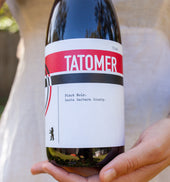
How-to Read a Wine Label
Reading a wine label can be daunting due to the variety of styles and terminologies used. However, understanding th...
-

The Impact of Climate Change on the Wine Industry
Climate change is reshaping the global wine industry in profound ways, impacting everything from grape growing to th...


















































